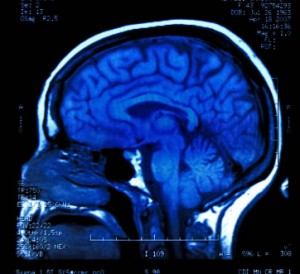Published: December 6, 2011
 Older women with weaker circadian rhythms, who are less physically active or are more active later in the day are more likely to develop dementia or mild cognitive impairment than women who have a more robust circadian rhythm or are more physically active earlier in the day. That’s the finding of a new study in the latest issue of the Annals of Neurology.
Older women with weaker circadian rhythms, who are less physically active or are more active later in the day are more likely to develop dementia or mild cognitive impairment than women who have a more robust circadian rhythm or are more physically active earlier in the day. That’s the finding of a new study in the latest issue of the Annals of Neurology.
“We’ve known for some time that circadian rhythms, what people often refer to as the “body clock”, can have an impact on our brain and our ability to function normally,” says Greg Tranah, PhD., a scientist at the California Pacific Medical Center Research Institute – part of the Sutter Health network – and the lead author of the study. “What our findings suggest is that future interventions such as increased physical activity or using light exposure interventions to influence circadian rhythms, could help influence cognitive outcomes in older women.”
The researchers collected data on activity and circadian rhythm from 1,282 healthy women, all over the age of 75, who were taking part in the Study of Osteoporotic Fractures. All the women underwent a series of neuropsychological tests to ensure they had no evidence of cognitive or brain problems. At the end of five years 15 percent of the women had developed dementia and 24 percent had some form of mild cognitive impairment (MCI). Those women who had weaker circadian rhythm activity, lower levels of activity, or whose peak level of activity was later in the day, were at highest risk of developing dementia or MCI. [continue reading…]
Published: October 4, 2011
A new study on emotion recognition has shown that people with frontotemporal dementia are more likely to lose the ability to recognise negative emotions, such as anger, fear and disgust, than positive emotions such as happiness.
“All patients continue to recognise happiness, at least in the initial stages of the disease, even when recognition of other emotions is heavily impaired,” says Dr Olivier Piguet, one of the study’s authors. “There is something about a happy face that is different from the way other emotions are expressed.”

© istockphoto
Frontotemporal dementia(FTD) is one of the most common types of dementia in younger adults. The age of onset of FTD is typically in the 50s or 60s but can be as young as 30.
Along with various other symptoms affecting behaviour and language, all people with FTD experience difficulty in recognising emotions (facial expressions).
Up until now, however, it was not known whether the three subtypes of FTD (semantic dementia, progressive non-fluent aphasia and behavioural-variant FTD) have the same emotion-recognition deficits, and whether certain techniques could help overcome these deficits. [continue reading…]
Published: August 16, 2011

Image: Creative Commons Studio Vision 1
Moderate social drinking significantly reduces the risk of dementia and cognitive impairment, according to an analysis of 143 studies by Loyola University Chicago Stritch School of Medicine researchers.
Researchers reviewed studies dating to 1977 that included more than 365,000 participants. Moderate drinkers were 23 percent less likely to develop cognitive impairment or Alzheimer’s disease and other forms of dementia.
Wine was more beneficial than beer or spirits. But this finding was based on a relatively small number of studies, because most papers did not distinguish among different types of alcohol.
Results are reported in the journal Neuropsychiatric Disease and Treatment. The authors are Edward J. Neafsey, PhD. and Michael A. Collins, PhD., professors in the Department of Molecular Pharmacology and Therapeutics.
Heavy drinking (more than 3 to 5 drinks per day) was associated with a higher risk of cognitive impairment and dementia, but this finding was not statistically significant.
“We don’t recommend that nondrinkers start drinking,” Neafsey said. “But moderate drinking — if it is truly moderate — can be beneficial.” Moderate drinking is defined as a maximum of two drinks per day for men and 1 drink per day for women. [continue reading…]
Published: February 14, 2011
 Seniors with hearing loss are significantly more likely to develop dementia over time than those who retain their hearing, a study by Johns Hopkins and National Institute on Aging researchers suggests. The findings, the researchers say, could lead to new ways to combat dementia, a condition that affects millions of people worldwide and carries heavy societal burdens.
Seniors with hearing loss are significantly more likely to develop dementia over time than those who retain their hearing, a study by Johns Hopkins and National Institute on Aging researchers suggests. The findings, the researchers say, could lead to new ways to combat dementia, a condition that affects millions of people worldwide and carries heavy societal burdens.
Although the reason for the link between the two conditions is unknown, the investigators suggest that a common pathology may underlie both or that the strain of decoding sounds over the years may overwhelm the brains of people with hearing loss, leaving them more vulnerable to dementia. They also speculate that hearing loss could lead to dementia by making individuals more socially isolated, a known risk factor for dementia and other cognitive disorders. [continue reading…]
 Older women with weaker circadian rhythms, who are less physically active or are more active later in the day are more likely to develop dementia or mild cognitive impairment than women who have a more robust circadian rhythm or are more physically active earlier in the day. That’s the finding of a new study in the latest issue of the Annals of Neurology.
Older women with weaker circadian rhythms, who are less physically active or are more active later in the day are more likely to develop dementia or mild cognitive impairment than women who have a more robust circadian rhythm or are more physically active earlier in the day. That’s the finding of a new study in the latest issue of the Annals of Neurology.


